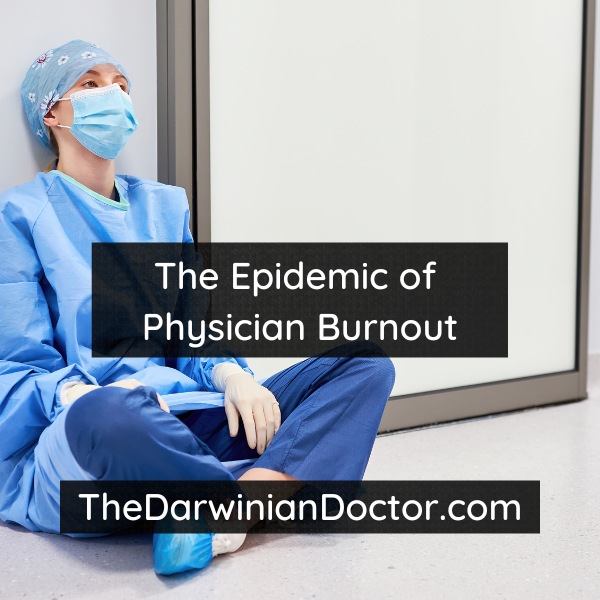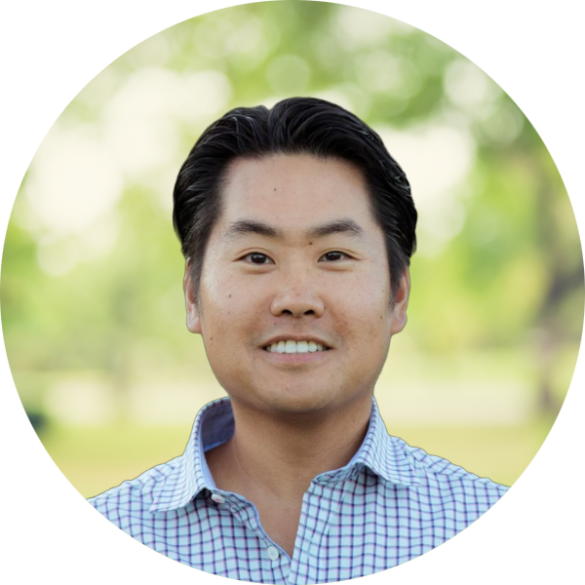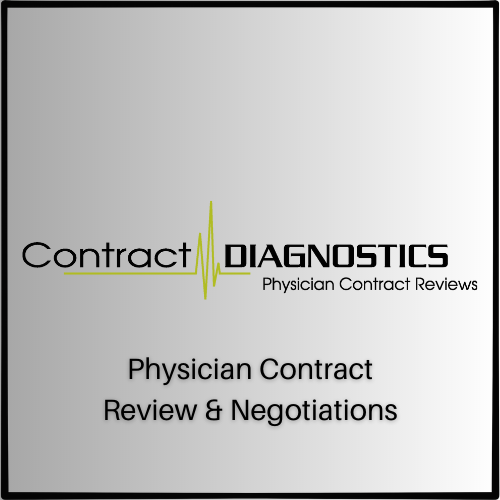Today’s post is about the epidemic of physician burnout. I’ll discuss where it comes from and why it’s such a danger.

Within my surgeon group, there has been a lot of discussion recently about physician burnout.
What is burnout?
Burnout is “a high degree of emotional exhaustion and depersonalization (i.e. cynicism) and a low sense of personal accomplishment at work.”
The National Academy of Medicine
It’s remarkably prevalent, with surveys showing that nearly half of physicians suffer from symptoms of burnout. Medical students and residents are not spared either, with rates thought to be somewhere between 40 and 76%.
So what’s the big deal about burnout?
From the perspective of a healthcare organization, there is strong incentive to prevent this phenomenon. There’s good evidence that burnt out surgeons have higher incidence of major medical errors, leading to poor patient outcomes.
Burnt out physicians are also more likely to quit and be less productive, which impacts a health system’s bottom line.
Burnout makes me a bad doctor
On a personal level, I can say that when I’m feeling burnt out, I’m not the best version of myself. I’m less empathetic to patients, I’m less of a perfectionist in the OR, and I’m less engaged and loving as a husband and father. My clinic days end with a feeling of intense fatigue and numbness. I find myself repeatedly checking my calendar, counting the days to my next vacation.
What about resilience?
In my reading on burnout, I stumbled across a fantastic article in the journal of the Society of Thoracic Surgeons that neatly dissects the issue: Physician Burnout: Are we treating the symptoms instead of the disease? It outlined the issue very well, and also was critical of one of the most commonly prescribed solution to burnout: resilience.
Resilience has been touted as a way for physicians to resist or recover more swiftly from stressors. To nurture and grow one’s reservoir of resilience, common wisdom recommends regular exercise, vacations, and spirituality.
But any strategy to reduce burnout can’t just focus on increasing your capacity to withstand it. The strategy also must try to decrease the causes of burnout.
“If, for example, physicians were sailing on a leaking boat, health care institutions commonly appear to be suggesting that the physicians bail more quickly rather than helping them plug holes.”
Ann Thorac Surg 2017;104:1117-22
I thought this quote was hilarious and so on point. But we have to both understand the causes of burnout and be willing to address these issues in order to successfully combat the root of the problem.
Why is burnout increasing?
It’s certainly a multifactorial issue, but evidence points to the vast increase in the administrative side of medicine. So much physician time is now spent with medical documentation, paperwork, coding, and billing. In fact, all this extra stuff takes up more time now than direct patient care.
I’d definitely like to spend less time typing and more time just treating my patients. But I do appreciate the conveniences of ordering medications electronically and reading patients’ histories in a legible and organized fashion.
I’m not too young to remember the days of biblical tomes of medical records filled with chicken scratch notes and endless stacks of old labs and orders. During residency, one of my most feared tasks was trying to synthesize these records into a cogent yet thorough discharge summary.
Now as a surgeon, I find it incredibly frustrating that I spend significantly more time typing reports and clicking through order sets than I spend actually talking to my patients or operating.
I also have a sneaking suspicion that the biggest beneficiaries of the current EMR systems are the insurance companies who can more efficiently pay or deny billing claims, and the litigators, who can easily mine the medical record for damning statements for use during lawsuits.
What can we do about it?
While some physicians are using scribes to offload at least the physical task of typing, this seems too much like a band-aid or stop gap solution. The real solution is a complete rethinking of the EMR system.
In an ideal world, I would simply have a conversation with a patient, do a physical examination, and come back to my desk to a neatly summarized history and physical. I feel this could be possible with artificial intelligence, but fear that this reality is many years away.
For me, and for many other physicians with rapidly depleting stores of resilience, that day cannot come soon enough.
— TDD
Are you feeling the burn? Comment below! Please share and subscribe for more content.


References:
- Ann Intern Med 2008;149:334-41.
- Ann Surg 2010 Jun;251(6):995-1000.
- Ann Thorac Surg 2017;104:1117-22.
Want to support the blog?
- Join our investor club at Cereus Real Estate
- Visit my Recommendations page
- Check out my wife’s food blog: Eat Dessert First
- Stay at our luxury short term rentals
- Check out my TikTok channel
- Follow me on Instagram
- Follow me on YouTube
- Contact me with questions







4 comments
[…] Smith starts taking one day off a week. She sees her kids more, starts doing yoga, and loses that horrible sense of burnout that’s plagued her for the last few […]
[…] At first glance, you might think that doctors are approaching the pandemic with the same “chin up, shoulders back” mentality that permeates American medical training. But if you probe a little deeper, there are widespread feelings of exhaustion, moral distress, and high levels of burnout. […]
Medpage had an article on their site where the solution to “Burnout” was Mindfullness training and Narritive Medicine. I made a response comment that EHR and Business School Mentality as two of the major causes of “Burnout” would not be improved by these modalities. Close to the same comment made in this article. It was deemed too inflammatory by the Editor to be added to the comments. A correct cause of a diagnosis usually leads to correct treatment with a good response in the appropriate amount of time. Thanks for this “article”. At least I now know my response could have been better received.
I wonder who was moderating the comments. That’s the kind of comment that I appreciate!